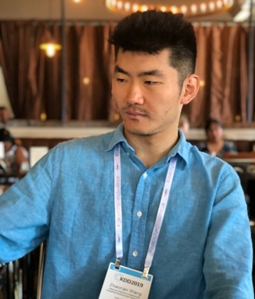The Geospatial Knowledge Hypercube
July 18, 2023 12:00 pm (Central Time)
Recorded VCO
Abstract
A tremendous amount of geospatial knowledge remains hidden in text-based data sources such as news reports, research papers, and social media.
To address this, we propose a novel architecture, the geospatial knowledge hypercube. The hypercube is a multi-scale, multidimensional knowledge structure that integrates information from multiple geospatial dimensions, themes, and application semantics. This integration is achieved by analyzing and extracting relevant data from large volumes of spatially-relevant text data. The hypercube can then serves as a foundation for various knowledge discovery processes, in-depth statistical analysis, and other advanced applications.
Constructing the geospatial knowledge hypercube requires the development of weakly supervised machine learning approaches. These approaches must be capable of automatically, dynamically, and incrementally combining information from unstructured text, structured tables, maps, and image data to extract geospatial data, themes, latent connections and relationships, and application semantics. Moreover, constructing the cube requires the development of new methods for recognizing geospatial entities and inferring geospatial relationships.
This VCO will introduce and demonstrate a knowledge extraction system designed for the automatic construction of the hypercube. The system has already been deployed for public access.
Speakers

Zhaonan Wang
University of Illinois Urbana-Champaign
Dr. Zhaonan Wang is currently a Postdoctoral Research Associate at the Department of Geography and Geographic Information Science at the University of Illinois Urbana-Champaign. He completed his Ph.D. in Spatial Information Science from The University of Tokyo in 2022 and previously obtained his B.S. in Geographic Information Systems from Peking University and his M.A. in City Planning from Boston University.
Dr. Wang’s research focuses on the application of artificial intelligence (AI) to geospatial and spatio-temporal data in order to address urban and societal challenges. He has also served as a program committee member at prestigious AI and data science conferences, including AAAI, KDD, WWW, CIKM, and ICDE. Additionally, during his Ph.D., he was awarded the esteemed MEXT (Japanese Government) scholarship.